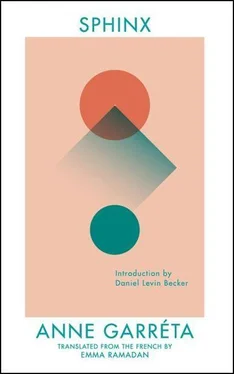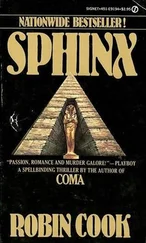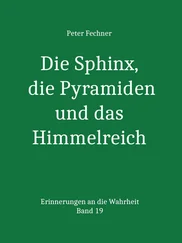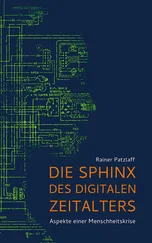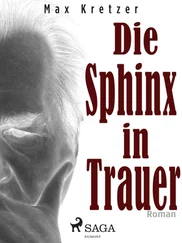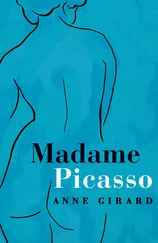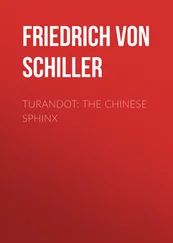Anne Garreta - Sphinx
Здесь есть возможность читать онлайн «Anne Garreta - Sphinx» весь текст электронной книги совершенно бесплатно (целиком полную версию без сокращений). В некоторых случаях можно слушать аудио, скачать через торрент в формате fb2 и присутствует краткое содержание. Год выпуска: 2015, Издательство: Deep Vellum Publishing, Жанр: Современная проза, на английском языке. Описание произведения, (предисловие) а так же отзывы посетителей доступны на портале библиотеки ЛибКат.
- Название:Sphinx
- Автор:
- Издательство:Deep Vellum Publishing
- Жанр:
- Год:2015
- ISBN:нет данных
- Рейтинг книги:3 / 5. Голосов: 1
-
Избранное:Добавить в избранное
- Отзывы:
-
Ваша оценка:
- 60
- 1
- 2
- 3
- 4
- 5
Sphinx: краткое содержание, описание и аннотация
Предлагаем к чтению аннотацию, описание, краткое содержание или предисловие (зависит от того, что написал сам автор книги «Sphinx»). Если вы не нашли необходимую информацию о книге — напишите в комментариях, мы постараемся отыскать её.
is a remarkable linguistic feat and paragon of experimental literature that has never been accomplished before or since in the strictly-gendered French language.
Anne Garréta
Pas un jour Emma Ramadan
Monospace
Sphinx — читать онлайн бесплатно полную книгу (весь текст) целиком
Ниже представлен текст книги, разбитый по страницам. Система сохранения места последней прочитанной страницы, позволяет с удобством читать онлайн бесплатно книгу «Sphinx», без необходимости каждый раз заново искать на чём Вы остановились. Поставьте закладку, и сможете в любой момент перейти на страницу, на которой закончили чтение.
Интервал:
Закладка:
Anne Garreta
Sphinx
To the third
INTRODUCTION
An anecdote that may be instructive to the reader of novels written under Oulipian constraint: in 1969, after Georges Perec published La Disparition —if not the most illustrative example of an Oulipian novel then certainly the easiest to explain 1—a critic named René-Marill Albérès reviewed it, lukewarmly, in the journal Les Nouvelles littéraires. Other critics reviewed La Disparition too, of course; what stood out about Albérès was that he plainly missed the central conceit of the book, namely that it had been written without any words containing the letter E.
I bring this up because, whatever grim conclusions we may reach specific to Albérès’s deftness as a reader (and La Disparition takes place in a world from which the letter E has gone mysteriously missing, so it’s not like there weren’t clues), his gaffe points out a pitfall with the potential to trip up even the most meticulous littérateur: reading an Oulipian novel without knowing the precise way in which it is Oulipian.
Did I say pitfall? I might have meant windfall.
As types of vertigo go, after all, being in the Oulipian dark is not such a bad one. It can even be refreshing, given that most novels in this milieu are preceded at some distance by their reputations. But in any case let’s continue to treat the situation with gravity, so to speak, for a moment longer.
The first time I read Sphinx, Anne Garréta’s first novel, I knew that it was Oulipian, 2but not how. It took me about forty pages to figure out its conceit, and what I felt once I did was more than just relief, more than just satisfaction to have quieted that nagging sense of missing something: I was, well, still bewildered. But it was a refreshing, trees-to-forest kind of bewilderment, the kind that comes when, say, you’ve been so busy trying to put together a jigsaw puzzle that you’re caught off guard by how strange and fascinating the resulting picture is. A bewilderment that asks not what but how. Like its namesake from Greek myth, Sphinx was that rare riddle that only makes you think harder after you know the answer.
Now, I assume that if you’re here you already know the answer, such as it is: you know the unspoken constraint behind the novel you are about to read, or have maybe just finished. (If you happen not to know the answer yet, I urge you to do everything in your power to stay ignorant for a while longer: sheathe the front and back covers of the book in kraft paper, avoid discussing it with booksellers, and don’t read any reviews unless you’re confident that they were written by lousy, inattentive critics. One hint: Anne Garréta uses the letter E plenty of times herein — your quarry lies elsewhere.)
Here’s the thing about Sphinx, though: it will bewilder you no matter which side of the riddle you enter from. The reader who knows what he or she is getting into from the outset loses nothing of the novel’s true vertigo — the high-wire act by which Garréta, under the cover of a relatively conventional narrative, quietly dismantles various conventions in the way we think and speak about love and despair and need. It bewilders me still, less on the technical level than on the level at which the technical merges with the conceptual, the medium with the message. To read Sphinx already aware of its conceit is only to break the picture back into its constituent puzzle pieces, to reverse the sequence of the questions your bewilderment asks: to go in wondering how the novelist pulled off this one trick, 3but come out wondering what kind of reality you’ve been inhabiting.
Above and beyond constraint, that particular blend of readerly effort and figure-ground reversal is one of the best things an Oulipian novel can hope to achieve, and in that sense Sphinx is consummately Oulipian. It’s worth noting, I suppose, that in other senses it is not remotely: stylistically, for one thing, it has none of the lightness, none of the gleeful air of structured play, found in most Oulipian fiction. Garréta’s prose is heavy, drastic, baroque, at once ruthlessly clinical and deeply sentimental; her characters wage their struggles against language and its strictures not out of a desire to explore or make mischief, but based on stakes of life and death. Sometimes literally, depending on the book. 4
Nonetheless, even if Garréta is an unusually ornate stylist for the Oulipo, and arguably the most deliberately radical thinker it has ever counted among its ranks, she still belongs in those ranks, and Sphinx shows why. Like the best of the workshop’s productions, it is animated by a drive to use language to question language, to manipulate and master and subvert the mechanics of everyday expression. In doing so it creates a subtly but sometimes chillingly different world, one that arises not so much within the narrative as within our experience of reading it. And it leaves us to sort out the implications, mostly, once we learn to recognize them: the arbitrariness of our assumptions; the flimsiness of our institutions; the difficulties of knowing another person, oneself, anything. Pitfall, windfall. The vertigo changes but does not disappear.
Daniel Levin Becker
San Francisco, January 2015

1 Speaking of explanations, the adjective Oulipian is retrofitted from the name OuLiPo, which stands for ouvroir de littérature potentielle, or workshop for potential literature: a collective established in Paris in 1960 with the purpose of exploring and exploiting the generative literary potential of linguistic, mathematical, and scientific structures — which, lots of the time, is a fancy way of saying the use of constraints as a writing aid. Perec became a member of the Oulipo in 1967 (and is still a member despite having died in 1982, according to one of the group’s admittedly stringent bylaws). Anne Garréta, on whom more in a moment, became a member in 2000, and I became one in 2009.
2 This is actually a much more complex and debatable statement than it seems. First of all, there is a longstanding debate within and without the Oulipo as to whether any work should be called Oulipian simply because its author is a member of the Oulipo. (Is this introduction Oulipian?) Second of all, even if you respond yes to the first point, there is still the technicality that Garréta published Sphinx in 1986, fourteen years before she became an Oulipian. In any event, at the time of my first reading the book had been commended to me as Oulipian by a trusted source, and I do not feel I was led astray.
3 To say nothing of the translator. If Garréta’s composition of Sphinx was a high-wire act, then Emma Ramadan’s task in carrying it over into a language with at least one crucially important constitutional difference is, near as I can figure it, akin to one tightrope walker mimicking the high-wire act of a second walker on a steeply diverging tightrope, while also doing a handstand.
4 The two other novels Garréta published prior to joining the Oulipo, Ciels liquides (1990) and La Décomposition (1999), are excellent examples of the class of modern French novel or film that sounds charming and fun when you hear its synopsis but turns out to be sort of existentially upsetting when you actually read or watch it.
I
Remembering saddens me still, even years later. How many exactly, I don’t know anymore. Ten or maybe thirteen. And why do I always live only in memory? Soul heavy from too much knowing, body tired from feeling pensive and powerless at the same time, so riven by this obsessive ennui that nothing, or almost nothing, can distract it anymore. Back then, if I recall correctly, I used to describe the world as a theater where processions of corpses danced in a macabre ball of drives and desires. My contempt and ennui did not, however, keep me from observing how this dance dissolved into an amorous waltz. Languid nights at the whim of syncopated rhythms and fleeting pulses; the road to hell was lit with pale lanterns; the bottom of the abyss drew closer indefinitely; I moved through the smooth insides of a whirlwind and gazed at deformed images of ecstatic bodies in the slow, hoarse death rattle of tortured flesh.
Читать дальшеИнтервал:
Закладка:
Похожие книги на «Sphinx»
Представляем Вашему вниманию похожие книги на «Sphinx» списком для выбора. Мы отобрали схожую по названию и смыслу литературу в надежде предоставить читателям больше вариантов отыскать новые, интересные, ещё непрочитанные произведения.
Обсуждение, отзывы о книге «Sphinx» и просто собственные мнения читателей. Оставьте ваши комментарии, напишите, что Вы думаете о произведении, его смысле или главных героях. Укажите что конкретно понравилось, а что нет, и почему Вы так считаете.
